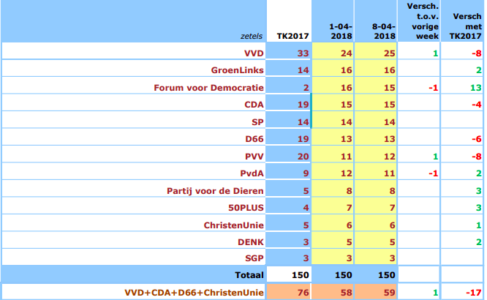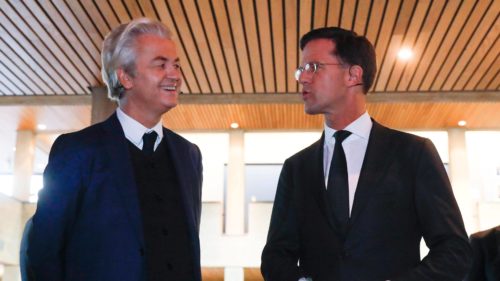Politics will tear us apart
Fragmentation phenomena in the Netherlands
There are many things that I associate with the Netherlands. Starting from football-related things, to cheese, bicycle culture and a specific way of thinking/mentality. The Netherlands is also a homeland to many of my friends, from whom I’ve learned a lot about its history, culture and traditions. In the world of our beloved politics, the Netherlands has branded itself for many years as a bastion of Western-style liberal democracy, being a pioneer of many liberal policies, which are not only restricted to Amsterdam’s tourism. However, in recent times, the Netherlands has slowly been changing, especially in light of the hectic political changes in Europe for the past 10 years.
The Netherlands was, as many scholars rightly argue, heavily based on the political cleavages that divided the country on issues such as ideology, religion, etc. However, since the 1970s, the voters started changing their mind and looking for alternatives to the mainstream forces. A perfect example would be D66, founded initially as a liberal political option for academia, urban voters and similar people attracted to the message. The party gained immediate success and became a part of the government in the 1970s.
Nowadays, the political scene in the Netherlands is probably quite interesting to the generation of my parents, having in mind how many new parties and political options appeared. New cleavages emerged, including the split between cosmopolitanism and nationalism, which is these days the issue of all European elections.
The Netherlands had a general election last year, and due to the fragmentation, it took them half a year to form the government, which, referring to the recent German case, does not look that bad. The government was finally formed with Prime Minister Mark Rutte leading the Cabinet of his right-liberal VVD party, the Christian-democratic CDA, social liberal D66 and the conservative CU. One can easily expect many views, compromises and negotiations in such a diverse government.
The fragmentation trend is continuing these days more than ever, with the recent opinion polls giving a clear lead to right-liberal VVD, but with several parties trailing behind, polling around 10-15 percent. These parties are the Christian-democratic CDA, far-right PVV, social-liberal D66, left-wing GroenLinks, far-left SP, while the once-mighty social democratic PvdA is still in a crisis after shocking results from the last elections. The other relevant parties here, which make the list quite impressive, are conservative CU, animal rights PvdD, pensioner and populist 50+, as well as much smaller right-wing Calvinist SGP and a minority party Denk, which was accused of supporting the Turkish leader Erdogan. The real enigma is the far-right PvD, formed two years ago, but strongly gaining support, especially among voters who have had enough of long-time, far-right leader Geert Wilders, or those who believe he is not radical enough.

Opinion poll estimated number of seats (Noties.nl)
Finally, there are some questions that the political scientists are now looking at. The first one is whether this ongoing fragmentation of the political scene in the Netherlands will continue, and if so, to what extent. The second one is probably the classic one, and that is whether the fragmented party scene brings more instability and the need to pursue compromise politics, or whether it actually guarantees that all of the diverse citizens’ views are being adequately represented. The third one is will this phenomenon have a spill-over effect in other European countries, bearing in mind the crisis of the mainstream parties in many EU countries.
The final question is the one that I am highly interested in. The question is whether the formation of FvD, a party slightly more to the right than the notoriously right-wing PVV, is a manoeuvre to push the political scene of the Netherlands further to the right, with the already right liberal VVD of Mark Rutte offering a harsh rhetoric in the last elections. If that is the case, then the political left and the centre should not perceive that the fragmentation goes into their favour. Quite the contrary.

Geert Wilders & Mark Rutte (Reuters)
